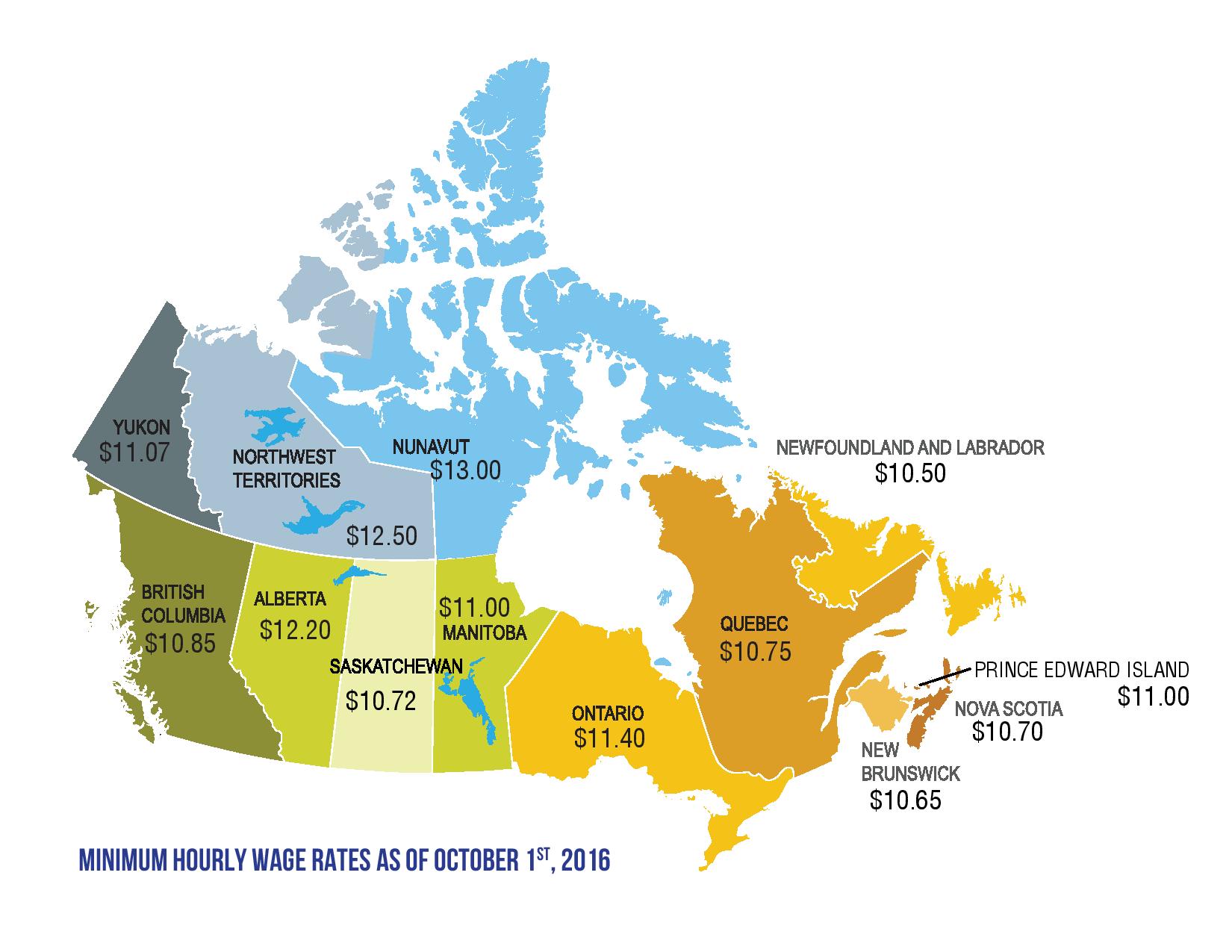“That’s what’s scaring everybody, especially farmers,” Jonathan Rochon, a farmer from Edwards, Ont., near Ottawa, told CBC.
Before the minimum wage hits $15 per hour in 2019, it will increase to $14 per hour on Jan. 1, 2018.
Ontario’s minimum wage currently sits at $11.40 per hour.

Current minimum wages in Canadian provinces.
Photo: Retail Council of Canada
Rochon worries his increased labour costs could leave him in the red.
“We hire about a dozen temporary foreign workers (a year), (and) we hire 20 Canadians. Everyone falls in the (minimum wage) area here we’ll have to raise salaries across the board … it wipes out all our profits,” he told CBC.
And he isn’t the only producer calculating what a $15 per hour minimum wage could do to farm businesses.
“There’s more to it than $15 an hour,” Sarah Harrison, who operates Mazak Farms near St. Thomas, Ont., told Farms.com in July. “As an employer I don’t just pay that (wage). I have to have employment insurance, Workplace Safety and Insurance Board contributions and CPP contributions. For me, it’s more than $15.”
A producer from Simcoe County warned that increasing the minimum wage means consumers could pay more for local produce compared to imported items.
“If a quart of Ontario strawberries costs $4.00 now, it could cost $5.00 next year,” Morris Gervais, who operates Barrie Hill Farms, told Farms.com in June. “Compared to $2.00 per quart for imported strawberries, local growers are put at a disadvantage.”
The Ontario Federation of Agriculture and Ontario Fruit and Vegetable Growers Association have all expressed concerns regarding a minimum wage increase.
Jeff Leal, Ontario’s Minister of Agriculture, released a statement about the wage increase in May.